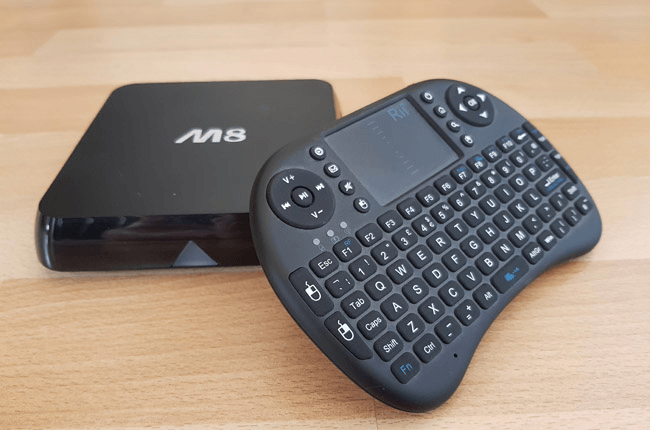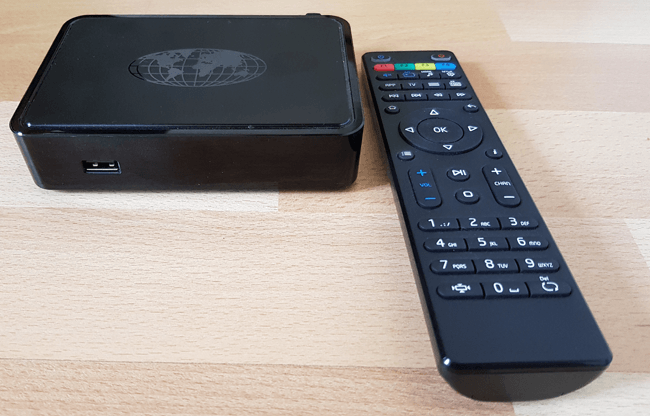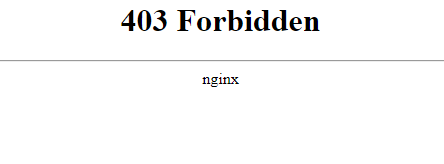How Much Does ‘Free’ Premier League Piracy Cost These Days?
samedi 2 septembre 2017 à 10:24 Right now, the English Premier League is engaged in perhaps the most aggressively innovative anti-piracy operation the Internet has ever seen. After obtaining a new High Court order, it now has the ability to block ‘pirate’ streams of matches, in real-time, with no immediate legal oversight.
Right now, the English Premier League is engaged in perhaps the most aggressively innovative anti-piracy operation the Internet has ever seen. After obtaining a new High Court order, it now has the ability to block ‘pirate’ streams of matches, in real-time, with no immediate legal oversight.
If the Premier League believes a server is streaming one of its matches, it can ask ISPs in the UK to block it, immediately. That’s unprecedented anywhere on the planet.
As previously reported, this campaign caused a lot of problems for people trying to access free and premium streams at the start of the season. Many IPTV services were blocked in the UK within minutes of matches starting, with free streams also dropping like flies. According to information obtained by TF, more than 600 illicit streams were blocked during that weekend.
While some IPTV providers and free streams continued without problems, it seems likely that it’s only a matter of time before the EPL begins to pick off more and more suppliers. To be clear, the EPL isn’t taking services or streams down, it’s only blocking them, which means that people using circumvention technologies like VPNs can get around the problem.
However, this raises the big issue again – that of continuously increasing costs. While piracy is often painted as free, it is not, and as setups get fancier, costs increase too.
Below, we take a very general view of a handful of the many ‘pirate’ configurations currently available, to work out how much ‘free’ piracy costs these days. The list is not comprehensive by any means (and excludes more obscure methods such as streaming torrents, which are always free and rarely blocked), but it gives an idea of costs and how the balance of power might eventually tip.
Basic beginner setup
On a base level, people who pirate online need at least some equipment. That could be an Android smartphone and easily installed free software such as Mobdro or Kodi. An Internet connection is a necessity and if the EPL blocks those all important streams, a VPN provider is required to circumvent the bans.
Assuming people already have a phone and the Internet, a VPN can be bought for less than £5 per month. This basic setup is certainly cheap but overall it’s an entry level experience that provides quality equal to the effort and money expended.
Equipment: Phone, tablet, PC
Comms: Fast Internet connection, decent VPN provider
Overal performance: Low quality, unpredictable, often unreliable
Cost: £5pm approx for VPN, plus Internet costs
Big screen, basic
For those who like their matches on the big screen, stepping up the chain costs more money. People need a TV with an HDMI input and a fast Internet connection as a minimum, alongside some kind of set-top device to run the necessary software.
Android devices are the most popular and are roughly split into two groups – the small standalone box type and the plug-in ‘stick’ variant such as Amazon’s Firestick.

These cost upwards of £30 to £40 but the software to install on them is free. Like the phone, Mobdro is an option, but most people look to a Kodi setup with third-party addons. That said, all streams received on these setups are now vulnerable to EPL blocking so in the long-term, users will need to run a paid VPN.
The problem here is that some devices (including the 1st gen Firestick) aren’t ideal for running a VPN on top of a stream, so people will need to dump their old device and buy something more capable. That could cost another £30 to £40 and more, depending on requirements.
Importantly, none of this investment guarantees a decent stream – that’s down to what’s available on the day – but invariably the quality is low and/or intermittent, at best.
Equipment: TV, decent Android set-top box or equivalent
Comms: Fast Internet connection, decent VPN provider
Overall performance: Low to acceptable quality, unpredictable, often unreliable
Cost: £30 to £50 for set-top box, £5pm approx for VPN, plus Internet
Premium IPTV – PC or Android based
At this point, premium IPTV services come into play. People have a choice of spending varying amounts of money, depending on the quality of experience they require.
First of all, a monthly IPTV subscription with an established provider that isn’t going to disappear overnight is required, which can be a challenge to find in itself. We’re not here to review or recommend services but needless to say, like official TV packages they come in different flavors to suit varying wallet sizes. Some stick around, many don’t.
A decent one with a Sky-like EPG costs between £7 and £15 per month, depending on the quality and depth of streams, and how far in front users are prepared to commit.

Paying for a year in advance tends to yield better prices but with providers regularly disappearing and faltering in their service levels, people are often reluctant to do so. That said, some providers experience few problems so it’s a bit like gambling – research can improve the odds but there’s never a guarantee.
However, even when a provider, price, and payment period is decided upon, the process of paying for an IPTV service can be less than straightforward.
While some providers are happy to accept PayPal, many will only deal in credit cards, bitcoin, or other obscure payment methods. That sets up more barriers to entry that might deter the less determined customer. And, if time is indeed money, fussing around with new payment processors can be pricey, at least to begin with.
Once subscribed though, watching these streams is pretty straightforward. On a base level, people can use a phone, tablet, or set-top device to receive them, using software such as Perfect Player IPTV, for example. Currently available in free (ad supported) and premium (£2) variants, this software can be setup in a few clicks and will provide a decent user experience, complete with EPG.

Those wanting to go down the PC route have more options but by far the most popular is receiving IPTV via a Kodi setup. For the complete novice, it’s not always easy to setup but some IPTV providers supply their own free addons, which streamline the process massively. These can also be used on Android-based Kodi setups, of course.
Nevertheless, if the EPL blocks the provider, a VPN is still going to be needed to access the IPTV service.

So, even if we ignore the cost of the PC and Internet connection, users could still find themselves paying between £10 and £20 per month for an IPTV service and a decent VPN. While more channels than simply football will be available from most providers, this is getting dangerously close to the £18 Sky are asking for its latest football package.
Equipment: TV, PC, or decent Android set-top box or equivalent
Comms: Fast Internet connection, IPTV subscription, decent VPN provider
Overal performance: High quality, mostly reliable, user-friendly (once setup)
Cost: PC or £30/£50 for set-top box, IPTV subscription £7 to £15pm, £5pm approx for VPN, plus Internet, plus time and patience for obscure payment methods.
Note: There are zero refunds when IPTV providers disappoint or disappear
Premium IPTV – Deluxe setup
Moving up to the top of the range, things get even more costly. Those looking to give themselves the full home entertainment-like experience will often move away from the PC and into the living room in front of the TV, armed with a dedicated set-top box. Weapon of choice: the Mag254.
Like Amazon’s FireStick, PC or Android tablet, the Mag254 is an entirely legal, content agnostic device. However, enter the credentials provided by many illicit IPTV suppliers and users are presented with a slick Sky-like experience, far removed from anything available elsewhere. The device is operated by remote control and integrates seamlessly with any HDMI-capable TV.

Something like this costs around £70 in the UK, plus the cost of a WiFi adaptor on top, if needed. The cost of the IPTV provider needs to be figured in too, plus a VPN subscription if the provider gets blocked by EPL, which is likely. However, in this respect the Mag254 has a problem – it can’t run a VPN natively. This means that if streams get blocked and people need to use a VPN, they’ll need to find an external solution.
Needless to say, this costs more money. People can either do all the necessary research and buy a VPN-capable router/modem that’s also compatible with their provider (this can stretch to a couple of hundred pounds) or they’ll need to invest in a small ‘travel’ router with VPN client features built in.

These devices are available on Amazon for around £25 and sit in between the Mag254 (or indeed any other wireless device) and the user’s own regular router. Once the details of the VPN subscription are entered into the router, all traffic passing through is encrypted and will tunnel through web blocking measures. They usually solve the problem (ymmv) but of course, this is another cost.
Equipment: Mag254 or similar, with WiFi
Comms: Fast Internet connection, IPTV subscription, decent VPN provider
Overall performance: High quality, mostly reliable, very user-friendly
Cost: Mag254 around £75 with WiFi, IPTV subscription £7 to £15pm, £5pm for VPN (plus £25 for mini router), plus Internet, plus patience for obscure payment methods.
Note: There are zero refunds when IPTV providers disappoint or disappear
Conclusion
On the whole, people who want a reliable and high-quality Premier League streaming experience cannot get one for free, no matter where they source the content. There are many costs involved, some of which cannot be avoided.
If people aren’t screwing around with annoying and unreliable Kodi streams, they’ll be paying for an IPTV provider, VPN and other equipment. Or, if they want an easy life, they’ll be paying Sky, BT or Virgin Media. That might sound harsh to many pirates but it’s the only truly reliable solution.
However, for those looking for something that’s merely adequate, costs drop significantly. Indeed, if people don’t mind the hassle of wondering whether a sub-VHS quality stream will appear before the big match and stay on throughout, it can all be done on a shoestring.
But perhaps the most important thing to note in respect of costs is the recent changes to the pricing of Premier League content in the UK. As mentioned earlier, Sky now delivers a sports package for £18pm, which sounds like the best deal offered to football fans in recent years. It will be tempting for sure and has all the hallmarks of a price point carefully calculated by Sky.
The big question is whether it will be low enough to tip significant numbers of people away from piracy. The reality is that if another couple of thousand streams get hit hard again this weekend – and the next – and the next – many pirating fans will be watching the season drift away for yet another month, unviewed. That’s got to be frustrating.
The bottom line is that high-quality streaming piracy is becoming a little bit pricey just for football so if it becomes unreliable too – and that’s the Premier League’s goal – the balance of power could tip. At this point, the EPL will need to treat its new customers with respect, in order to keep them feeling both entertained and unexploited.
Fail on those counts – especially the latter – and the cycle will start again.
Source: TF, for the latest info on copyright, file-sharing, torrent sites and ANONYMOUS VPN services.
 Every day, copyright holders send out millions of takedown notices to various services, hoping to protect their works.
Every day, copyright holders send out millions of takedown notices to various services, hoping to protect their works.

 It’s not uncommon for torrent sites to suffer downtime due to technical issues. That happens pretty much every day.
It’s not uncommon for torrent sites to suffer downtime due to technical issues. That happens pretty much every day. 


